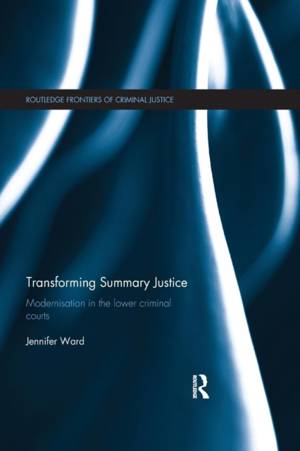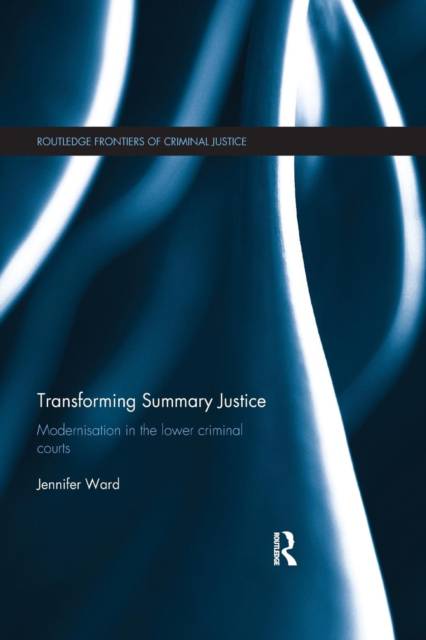
- Retrait gratuit dans votre magasin Club
- 7.000.000 titres dans notre catalogue
- Payer en toute sécurité
- Toujours un magasin près de chez vous
- Retrait gratuit dans votre magasin Club
- 7.000.0000 titres dans notre catalogue
- Payer en toute sécurité
- Toujours un magasin près de chez vous
Description
Sweeping changes are being introduced into the lower-tier magistrates' courts in England and Wales in efforts to modernise the system and speed up case processing. They concentrate on delivering prompt justice within a modern, efficient and technologically advanced system. But these transformations are fundamentally changing the way justice is delivered. This book analyses criminal court streamlining processes and argues that there are areas where due process protections are being undermined.
Transforming Summary Justice reports empirical research carried out with lay magistrates and criminal justice professionals. Views and experiences drawn from magistrates are valuable because of the central role they perform in lower court justice. Further, magistrates provide a wider understanding of the context in which the lower criminal courts operate and enable a critical appraisal of this unique style of 'lay justice'.
This book is directed at students of criminology, criminal justice and socio-legal studies, who will find the debates stimulating and useful to engage with in contemporary analyses of criminal court justice. It will also be of interest to justice and legal professionals who are seeing swingeing alterations to the field in which they work. The book will have appeal in other common-law jurisdictions, where similar modifications to lower court justice are occurring, and also across Europe, where lay involvement in legal decision-making is being debated and becoming accepted practice.
Spécifications
Parties prenantes
- Auteur(s) :
- Editeur:
Contenu
- Nombre de pages :
- 164
- Langue:
- Anglais
- Collection :
Caractéristiques
- EAN:
- 9780367226091
- Date de parution :
- 04-02-19
- Format:
- Livre broché
- Format numérique:
- Trade paperback (VS)
- Dimensions :
- 156 mm x 234 mm
- Poids :
- 254 g

Les avis
Nous publions uniquement les avis qui respectent les conditions requises. Consultez nos conditions pour les avis.






